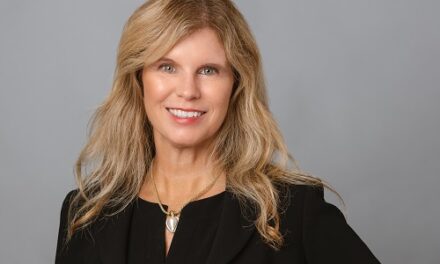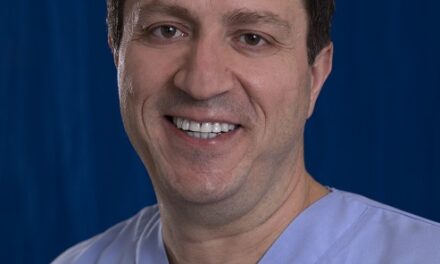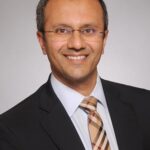 Aging is not a matter of inevitable decline, dementia and disability, but rather a dynamic process that is filled with the potential to develop new capacities and contribute to the world in deeply meaningful ways. Aging is, in fact, an achievement, and should be celebrated and anticipated as a new and fulfilling life stage.
Aging is not a matter of inevitable decline, dementia and disability, but rather a dynamic process that is filled with the potential to develop new capacities and contribute to the world in deeply meaningful ways. Aging is, in fact, an achievement, and should be celebrated and anticipated as a new and fulfilling life stage.
That decidedly bold and optimistic point of view belongs to Carl Eisdorfer, M.D., Ph.D., Knight Professor and Director of the Center on Aging at the University of Miami (UM) School of Medicine. Eisdorfer, who is also Chairman Emeritus of the Department of Psychiatry and Behavioral Sciences and Special Assistant on Aging to UM President Donna Shalala, is a geriatric psychiatrist and leading international expert in the field of aging whose experience and research have convinced him that it is time for a paradigm shift in our cultures view of aging.
“We need to focus on quality of life,” he says. “Not simply extending life, but improving it thats our emphasis at the Center on Aging, in our research, classes and programs. There is new information that is turning our old assumptions about aging upside down. For example, the research on brain plasticity tells us that older brains can continue to learn, grow and adapt. Aging is a dynamic process and we are trying to address all the complexities involved in it. The research conducted at the Center on Aging is providing the data to support a whole new approach to aging.”
A higher quality of life for aging adults is a worthy and attainable goal, but Eisdorfers thinking goes well beyond that. He believes that older people represent an extraordinary reservoir of talent and an opportunity for the nation. “One in five Americans will soon be over the age of 65. This rapidly growing population of Americans is potentially one of the greatest assets civilization has ever seen. They can still be healthy and active, sharing their time, experience and knowledge. They can teach, become active in efforts to clean up national parks, improve the environment in local communities, become civic leaders there are no limits. They can make a tremendous difference and everyone would benefit. With a modest investment, we could create a cadre of older people an Older American Corps – who give back in significant ways.
“We should view this aging population not as a problem, but as a resource. With the number of people over age 65 expected to double in the next decades, we need to identify the needs of this population and to advance our thinking and practices to meet those needs and also to take advantage of the great opportunity they present,” Eisdorfer says.
Eisdorfer notes that many people will live for at least twenty years after retirement, creating what he calls “the fourth age the age of reinvestment.” Life used to be divided into thirds, he says, but todays longevity has rendered that concept obsolete. “The past projections on aging were wrong. They were formed by looking backwards and they invariably understated things. Looking forward gives a different picture. Older people today are healthier, wealthier and better educated; Medicare and Social Security have made an enormous difference. Of course, there are significant biomedical, economic and social needs which we as a society must address, but we need to go beyond this to create legitimate options for our later years. Some might want to sit in a rocker and let their brains and bodies atrophy, but more people want to be productive, doing things they always wanted to do and helping others, too.”
To help make this vision a reality, Eisdorfer and the Center on Aging have implemented a number of strategies. One particularly intriguing area for development, says Eisdorfer, is the creative application of information technology to the problems of aging. Telemedicine can expedite care for the homebound; online support groups can ease loneliness for isolated older people and help caregivers cope with stress; webcams can bring far-flung families together and online classes can give older people enrichment through education. “This is the information age; we need to maximize computer technology to help with the problems of aging in practical ways. We found that, for caregivers who became clinically depressed while caring for relatives with Alzheimers disease, online support groups made a profound difference.”
The Center on Aging was established in 2001 as a university-wide initiative, with creative affiliations to a variety of community organizations and collaborative relationships within the university community. The result is a consortium of kindred groups and individuals that are reshaping the experiences of older adults in South Florida through pioneering research and innovative programs that address the many transitions and challenges of aging.
Eisdorfer was recently the recipient of the Presidents Award for Lifetime Achievement from the American Association for Geriatric Psychiatry. He received the rare honor, which has only been given three times in the past twenty-five years, at the organizations annual meeting in Orlando in March.
Post Views: 1,057
 Aging is not a matter of inevitable decline, dementia and disability, but rather a dynamic process that is filled with the potential to develop new capacities and contribute to the world in deeply meaningful ways. Aging is, in fact, an achievement, and should be celebrated and anticipated as a new and fulfilling life stage.
Aging is not a matter of inevitable decline, dementia and disability, but rather a dynamic process that is filled with the potential to develop new capacities and contribute to the world in deeply meaningful ways. Aging is, in fact, an achievement, and should be celebrated and anticipated as a new and fulfilling life stage. 


























